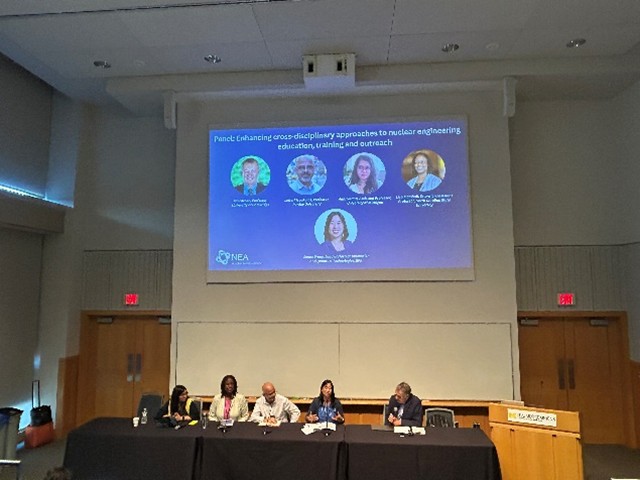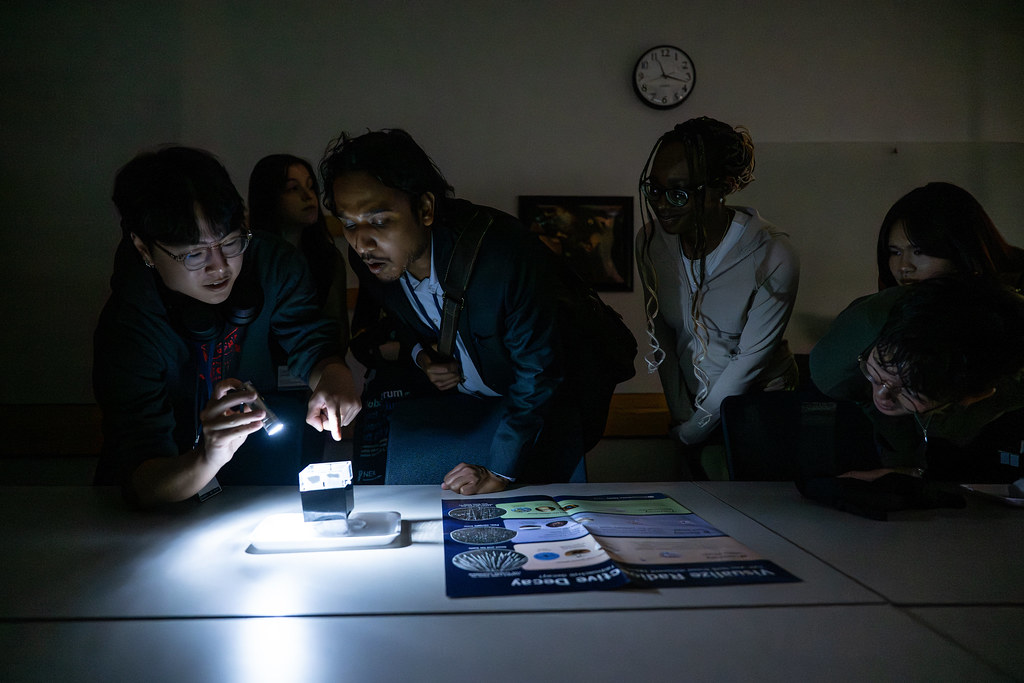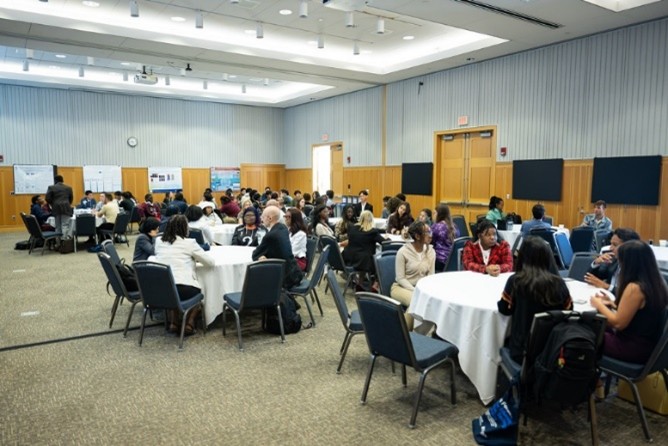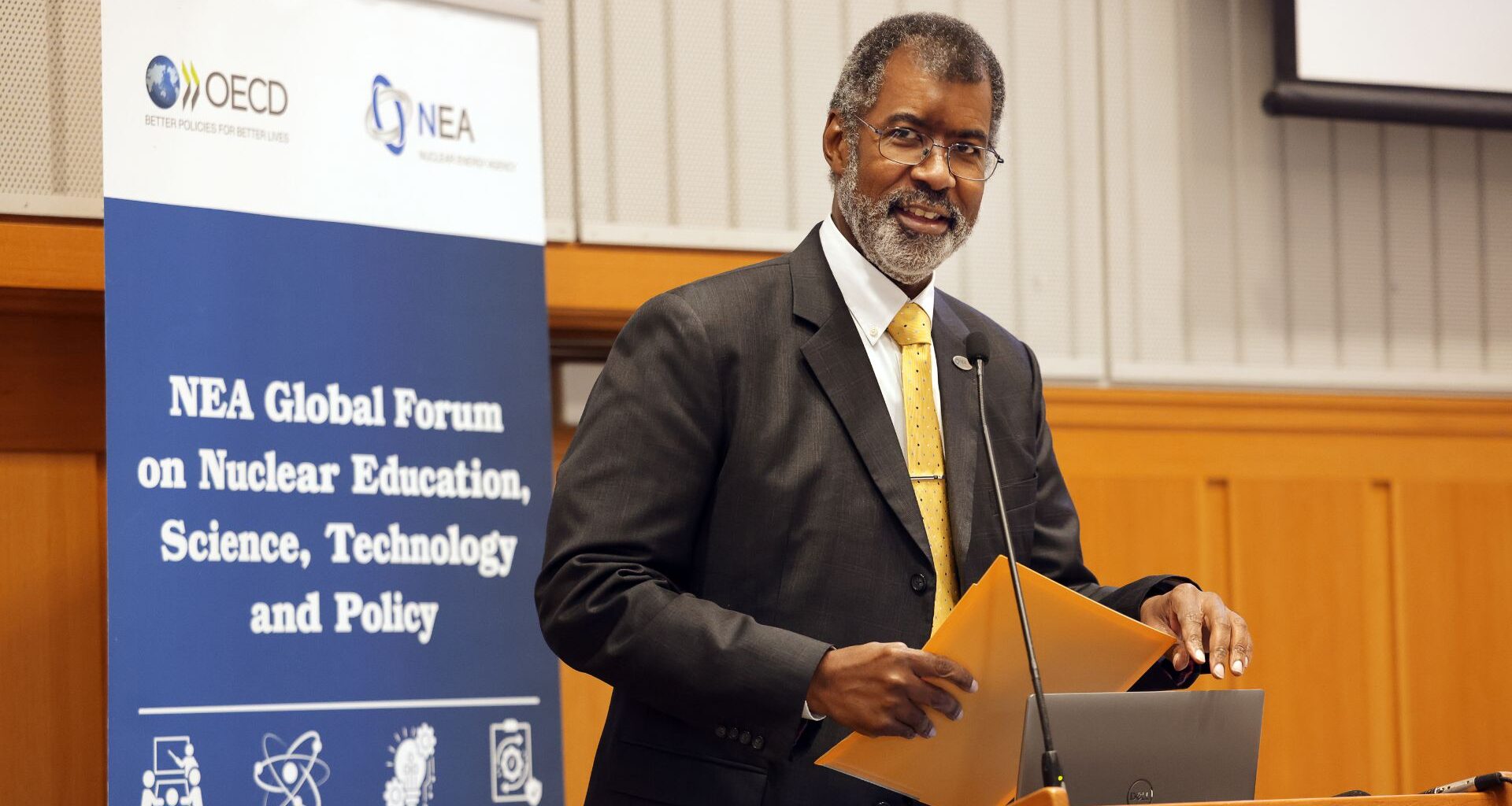Director-General William D. Magwood, IV delivering opening remarks at the Global Forum Symposium.
The first Symposium of the NEA Global Forum on Nuclear Education, Science, Technology and Policy, hosted by the University of Michigan and attended by around 180 participants, brought together key members of academia, government, industry and civil society from across the globe. Participants exchanged ideas and explored solutions to some of the most pressing challenges in nuclear education and workforce development at the event, held in Ann Arbor, Michigan (United States) from 30 September to 3 October 2025.
The Symposium began with the leaders of the Global Forum Working Groups presenting their activities, discussing achievements, challenges, and opportunities to strengthen cross-disciplinary approaches in nuclear engineering education.

A panel discussion on the role of social science and artificial intelligence in higher education nuclear programmes.
In parallel, an outreach workshop welcomed 60 secondary school students and their teachers to learn about nuclear energy topics. The workshop leveraged innovative approaches to learning, including virtual reality, games and interactive discussions with early career professionals.

Secondary school students participating in interactive demonstrations (top) and meeting with early career professionals (bottom)

To further engage new talent, over 20 participants in the Young Professionals Programme of the Global Forum Symposium took part in development and mentorship activities designed to build skills for their future careers. This included showcasing their own research
during a poster presentation session.
The Symposium plenary sessions included opening remarks from Karen Thole, Dean of the College of Engineering at the University of Michigan, and NEA Director-General William D. Magwood, IV.


Karen Thole delivering opening remarks (left) and the keynote panel session of the Global Forum Symposium (right).
The programme featured a series of panels and fireside chats that highlighted regional perspectives, examined the changing nuclear energy policy landscape and discussed strategies for building a skilled nuclear workforce. Industry, community and university leaders shared insights into their priorities and needs, while early career professionals provided fresh perspectives on the future of the sector. Breakout group discussions allowed for innovative capacity-building solutions to be suggested, with a judging panel that selected the most promising ideas. The Symposium also highlighted novel approaches to nuclear education outreach, including art, toys, card games and travelling exhibits.
In the closing remarks, Seungjin Kim, Chair of the Global Forum and Professor at Purdue University, reinforced the Global Forum’s commitment to fostering dialogue, international collaboration and the strategic enhancement of nuclear education.

